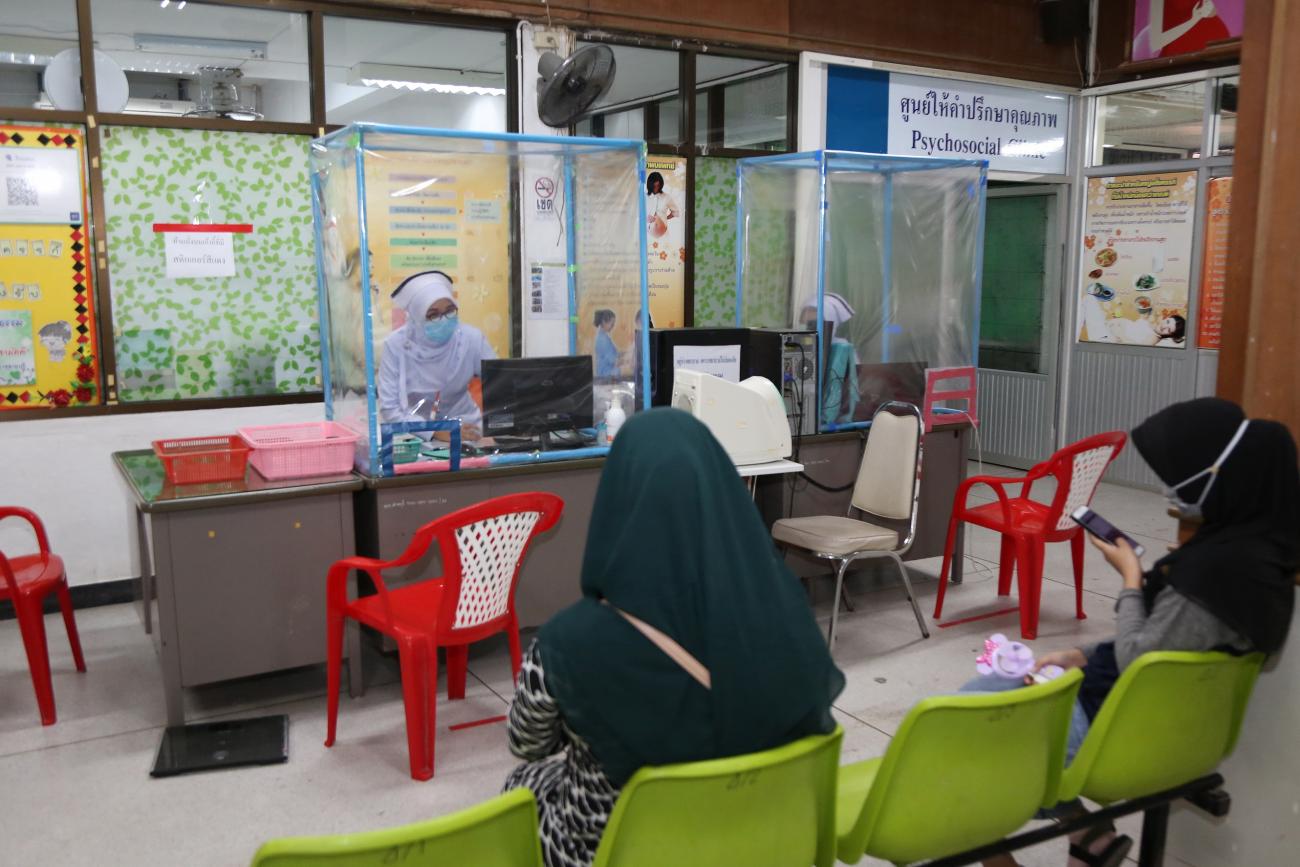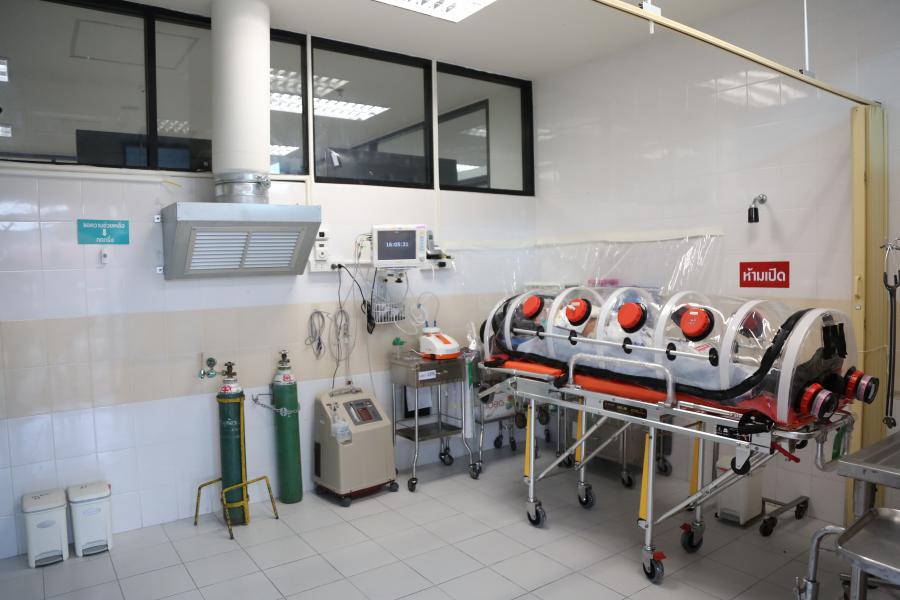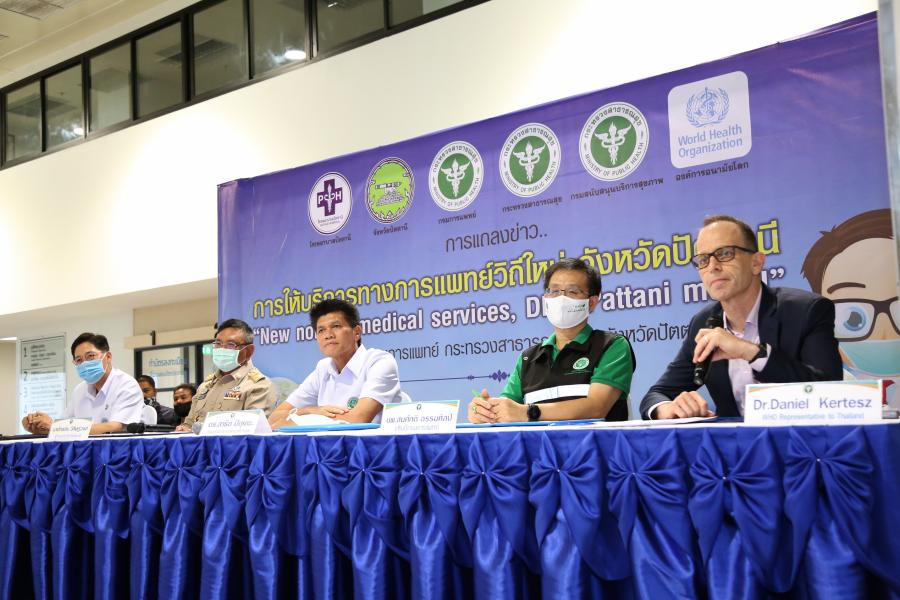Thailand Launches “New Normal” Healthcare System To Build Back Better After COVID-19

Thailand has launched “build back better”, a comprehensive project to help healthcare facilities and personnel strengthen their response to COVID-19.
Thailand has launched a comprehensive project to help healthcare facilities and personnel strengthen their response to COVID-19, and to improve the health care system - “build back better” - after the pandemic subsides.
All healthcare facilities in Bangkok and 12 Regional Health Offices across the country will participate in the project over the next 10 months. The Department of Medical Services, Ministry of Public Health, with support from WHO and the government of Japan has developed a 'new normal' model for health service delivery to strengthen the healthcare system and support health workers during the COVID-19 pandemic and beyond.
Pattani province is piloting the “new normal” system. Located deep in the south of Thailand, on the border with Malaysia, the province has reported 91 COVID-19 cases since the beginning of the epidemic. All were detected through screening persons entering Thailand, tracing contacts of known cases, or active case finding in the community.

The “new normal” medical services model – the “Pattani model” is an innovation developed in the wake of COVID-19. As part of the model, patients with different diseases are classified into three 'traffic light' groups – green, red and yellow – based on the need for direct medical care and risk of COVID-19 infection. Patients that do not need to visit the healthcare facility are supported by remote consultation (telemedicine) and drugs are delivered to them, often by village volunteers. Arrangements for patients that need to visit healthcare facilities are modified, taking into account the patient pathway and the need to maintain physical distancing. When more intensive care is required, services have been made safer for patients and health care providers – such as upgraded ventilation within facilities.
“The Pattani Model illustrates how Thailand is adapting and innovating in response to COVID-19. Structural and process improvements in health delivery, supported by effective governance and coordination mechanisms, will mean safer, more effective health care. This benefits both patients and health workers,” said Dr Daniel Kertesz, WHO Representative in Thailand.

“The work of village health volunteers has been central to combating COVID-19, in Pattani and elsewhere. They will continue to have an important role in facilitating the provision of health services in the “new normal”. Engaging religious leaders helped get the right messages to the community in the right way. “The dedication and hard work of all people supporting the COVID-19 responses was remarkable and inspiring,” he added.
Several months ago, when the COVID-19 pandemic was at its peak in Thailand, some hospitals were challenged to manage the outbreak and protect their health workers. There was some temporary disruption of essential health services.
To help avoid such a situation in the future, the “new normal” medical services model aims to raise understanding and awareness of risk and strengthen healthcare facilities’ capacity to manage it - so that the system can be better prepared. A timely response with risk-informed Business Continuity Planing for emerging infectious diseases and the new normal healthcare service innovations will build resilience after the crisis.
The project includes an assessment of risks (existing and projected) at all levels of healthcare facilities in each of the 12 areas and Bangkok; identifying extra “surge” capacity each healthcare facility needs to cope with COVID-19 and non-COVID-19 related health emergencies and providing necessary resources for strengthening preparedness.
WHO is part of the Ministry of Public Health Strategic and Technical Advisory Group, which is supporting regional and provincial healthcare facilities with timely forecasting and dynamic guidance to cope with the risks relating to COVID-19.
Originally published in WHO Thailand

